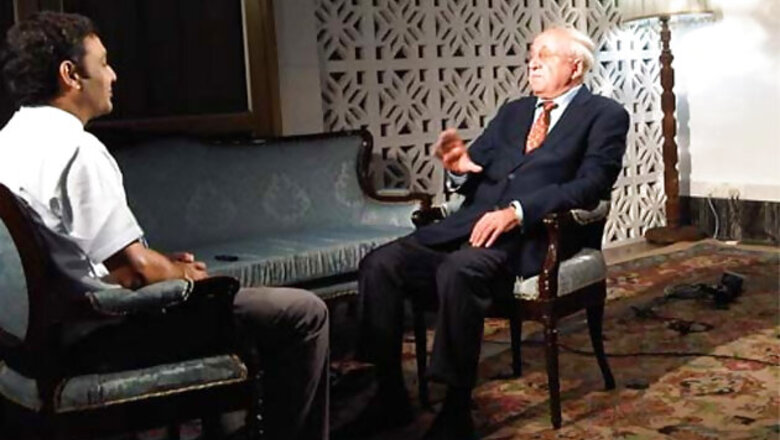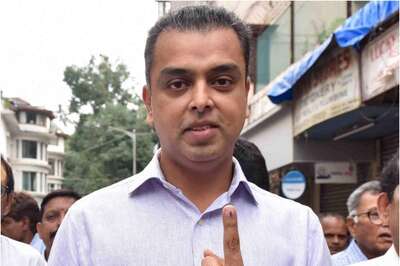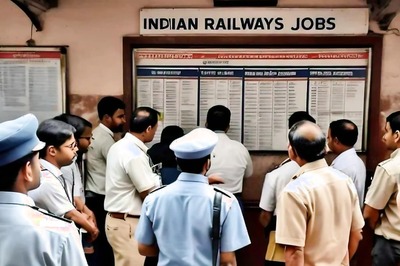
views
The Sistema - Shyam telecom license cancellation threatens to cast a long shadow over India-Russia ties. CNBC TV18’s Siddharth Zarabi caught up with Alexander M Kadakin, the second time Ambassador of the Russian Federation to India. In his first exclusive TV interview on the recent developments, Kadakin warned that Russia would not allow its taxpayers money to go waste due to India’s internal politics, adding that while Sistema and Russia were keen to resolve the matter, one of the options could also be to exit India.
Excerpts of the exclusive interview:
Siddharth Zarabi: Let me begin by asking you about the Russian Deputy Prime Minister’s short visit to India. Although Russian-Indian economic cooperation has continued for many years, for the last few months we saw some irritants coming up. It seems that (due to recent developments) investors from around the world and obviously investors from Russia too may have some concerns about India’s quality and attractiveness as an investment destination. What do you have to say to that?
Alexander Kadakin: Well, we have very broad cooperation with India in the field of mutual investment, too. The Sistema or Shyam Telecom and India investment cooperation started in 2008 when they became bona fide buyers of the license. They acted in strict accordance with all laws and regulations of India and bought the license for the frequencies, not claimed by anyone. We were very happy that such a new and interesting field of our mutual cooperation as telecom was opened, a new investment destination for the Russian capital – both private capital from the Sistema, as well as from the Government with its shares.
As bona fide buyers of that license we were thunderstruck when the whole thing all of a sudden changed here in India and all those licenses were pronounced invalid. It was a very unexpected development. I feel the judicial and other authorities did not make a distinction between our company, which was a bona fide buyer, and all other companies. And the spectrum we bought was not claimed by any Indian company.
There might have been mistakes or maybe even crimes. But we were not affected by them. We have been until now quietly and productively working and the number of Indian clients covered by the MTS brand has reached 16 mn. We shall watch very closely how the situation unfolds in the coming months, even days. It is important that a clear distinction be made between those who may have committed some crime and those who were working diligently, honestly and productively.
Siddharth Zarabi: Ambassador Kadakin, you made this very important point and you are not the only ambassador of a county which, as international investors, seem to be impacted by the Supreme Court decision. My next question to you has to do with the overall process that seems to have invoked in this regard. The company in question has begun arbitration proceedings towards the Government of India...
Alexander Kadakin: No, arbitration has not been started. We are looking together with our Indian friends how we can get out of this situation in a justful and correct way. Arbitration has not started. There are three options that the Russian side can take. First, is just altogether leave India.
Siddharth Zarabi: Is that really an option?
Alexander Kadakin: It is an option, but we do not want it. We do seek investment cooperation between the two counties to flourish and develop. Please understand that we welcome India’s investment in Russia, especially in hydrocarbons, oil, fertilizers, diamonds, etc. There is a shining example of very fruitful cooperation – Sakhalin 1 project. But, we should keep in mind that this is a two-way traffic, like two connecting vessels in chemistry. How can successful investment from the Indian side take place if such things happen to our investors here? It takes two to tango, you know. We do want to see India as our investor and we openly announced it. It was mentioned yesterday by our Deputy Prime Minister, Mr Dmitry Rogozin.
Siddharth Zarabi: Ambassador, is it possible to tell us, what was the response that you got from the Government, because clearly the Russian Government has been raising this issue for several months now? You heard anything from any responsible agency in the Government?
Alexander Kadakin: This matter was discussed yesterday, when Russia’s Deputy Prime Minister Rogozin had talks in his capacity as the Co-Chair of the Russian-Indian IGC. We mentioned this issue to the Co-Chair from the Indian side, the External Affairs Minister, Mr SM Krishna. It was also discussed in D. Rogozin’s conversation with the Prime Minister. We are not much for this first option.
The second choice is an international court of arbitration. We have a bilateral agreement on safeguarding investments, which is valid. International practice gives priority to international agreements over domestic laws. But if you would like, we can opt for the third option – to continue cooperation and to resolve this sudden problem in a friendly manner characterized by the high spirit of our strategic and privileged partnership.
Siddharth Zarabi: Ambassador, what would be the consequences if no solution is achieved, because clearly, according to what we heard from the Indian authorities the matter is a judicial one, it is up to the courts and we can’t really influence the courts in India?
Alexander Kadakin: I don’t want to comment on the Indian judicial system, with highest respect I have for it. But it seems there is more political content here than judicial one. If we take up the matter judicially, look - a bona fide buyer acquires a frequency which nobody claims, acting according to all norms and regulations, valid at that time, in 2008, and all of a sudden in 2011 they just cancel all the licenses and my company is boiled in one soup with all other companies which may have committed something. It is not a judicial matter only, it is a political one. The Russian Government will never allow 3.1 bn dollars to be thrown in the abyss. This must be understood. The Government’s shares are the tax-payers' money. It is about 1 bn. Are we to throw our money into the inferno of your internal problems in the telecom sector?
Siddharth Zarabi: Ambassador, while you mention this I am also reminded of the fact that this time when the investment happened in 2008 the Rupee-Rouble Debt Agreement already worked. I remember senior representatives of the Government of India saying that this company became a way to settle this Rupee-Rouble debt. Clearly the consequences of this will not be limited to private companies but also break down of relations at a much higher level, at the Government to Government level.
Alexander Kadakin: I do agree with you because partly the money that was invested was from the Rupee debt of India to the former Soviet Union. India has been a very diligent payer of that debt. It was done just sharp on the day. There is some money left of that debt, but it is almost paid. All and all, our preference and the best way to settle the problem is to do it in a friendly spirit with very active participation of the Government. We do have highest respect for the judiciary in your country, but for us, it is primarily a political matter.
Siddharth Zarabi: Ambassador, let me now turn to the issue of overall cooperation between India and Russia. There are reports that in the course of the recent years India has become less important destination for Russia. Is that perception mistaken?
Alexander Kadakin: I do not agree with this at all. How can it be that India would seem not a very favourable destination for Russian investment if yesterday a deal was signed in Moscow opening a credit line for 3.5 bn US dollars for the development of Kudankulam power plant? This is a huge, very important and strategic project. How can one say that things are not OK? These are the intentions of ill-wishers who try to sow evil seeds of doubt into our cooperation.
We do have problems in mutual trade because the figures are not satisfying. Its volume of 10 bn dollars between India and Russia as an annual turnover is just peanuts. $ 9.6 bln, as of today, to be precise. With China we have $ 200 bln. India’s turnover with China is planned to reach $ 100 bln. That is important!
Siddharth Zarabi: Before I ask you any specific question on the initiatives that Russia might take in future let me get back to the issue of Kudankulam. In the past we heard that some of the protests that were launched against the nuclear power in India were, perhaps, motivated ones. You also mentioned “ill wishes”. Would you like to expand on that? Some doubt you have in your mind, who is behind the protests?
Alexander Kadakin: Well, whose were named by the Prime Minister in his interview to the 'Science' magazine. When that situation continued for half a year, when India as a result was loosing 1 mn dollars every day. One should naturally think, how come those people were so well organized, on what money those “nature-protectors” were buying water and had food delivered, had shamianas erected there? It costs a lot. Who was giving the money? And the Indian Government has found that the money was channeled through all kind of ecological and “green” NGOs. But the money initially was targeted not for the anti-Kudankulam protests. Instead of developing the infrastructure in the region and in those villages, the money was used to organize protests!
Siddharth Zarabi: What would be your message to the larger Indian masses as far as the development of nuclear power is concerned, because Kudankulam project will be a shining example of Indian-Russia nuclear cooperation?
Alexander Kadakin: It is not a secret. In the scientific world everybody knows that these units are the safest in the world. And, despite maybe some kind of jealousy or competition on the part of other countries, even the scientists in those countries do acknowledge that those units are the safest and the best in the world. That is why we do not see why we should not continue our large-scale cooperation with India. We now have a roadmap to solve India’s energy problems and we are helping earnestly, doing whatever we can. It has been calculated that in twenty years even if India buys the entire amount of oil produced in the world, it will not suffice to meet its estimated requirements for sustainable development. To overcome India’s energy deficit, the only solution is nuclear power.
Siddharth Zarabi: And are you satisfied with the timeline and the progress made?
Alexander Kadakin: It has been delayed for half a year, true, but not due to our fault. Our scientists were sitting idle for six months, doing nothing. We hope that there will be no repetition of this situation. We say that given India’s desire, and the roadmap is there already, we can help India in serial construction of nuclear units, not only Kudankulam #3 and #4, but #5 and #6 also, if space permits. We also are ready to build another station in another locality. The decision on the new site has not been made. Haripur was mentioned in the passing. We are waiting for another site to be named. Other countries that participate in India’s peaceful nuclear energy projects are not our competitors, since Indian requirements in energy are such that even the three countries taken together – Russia, France, and the United States – will not be able to meet India’s demands in full.
Siddharth Zarabi: Mr Kadakin, let me ask you frankly, as a long standing expert a more general question. The overall environment in India at this point of time seems like in a little bit of despondency. The external situation reflects a concern of the international community. How do you see the overall situation around India as well as the overall framework?
Alexander Kadakin: It’s a tricky question you’re asking. I cannot comment on your relations with neighboring countries, but we do welcome the process which has started between India and Pakistan with establishing of more channels of communication. More channels of cooperation mean more channels of friendship. The only way to have a greater mutual understanding is to work together, to talk. We welcome the process of step-by-step normalization. There is a heavy burden of the past and even of crimes committed against India. But I think this baggage has to be left unclaimed, and new relations should be built.
As regards India, we are rejoicing together with India at its achievements. The figures of the India’s growth have been high, nearly 9 per cent, which in essence is almost an economic miracle. We are proud together with you, as Russia is India’s equal partner, a sister. So whenever I get to Moscow, I give one simple example: in five and a half years of my absence between the 'two Indias', when I was leaving my first ambassadorial post in 2004, the metro was inaugurated in Delhi and I took a joy ride. There were only seven stations there including Kashmiri Gate. But when I came back from Stockholm, you had more than 100 stations. Is that not a miracle? Moscow would be envious. We have one new station built in one year, and there is so much celebration. India is rushing ahead like a Russian troika. We are happy to be in that sledge together with India and want to rush even faster, and unite our efforts in all fields including that of mutual investment.
We do hope that the Shyam Telecom problem will be amicably solved. These are some signals we are getting from the Government. A special group has been created, not the group for all the players in that game, but specifically to look into the Russian case as a separate one, as we have been insisting from the very beginning. So, arbitration or a court case, like in Singapore court or in Stockholm, is the last resort. Leaving India after so much of our not only money, but of our souls and hearts have been invested, is definitely not our choice. We would like the Government to take up this matter in a really serious way. The future of our investment cooperation depends on this. If it is not successfully resolved, than we shall have second thoughts whether it is worthwhile to cooperate. We come here, invest money and then retrospectively everything is changed overnight. We will not allow Russian money to perish.
Siddharth Zarabi: Ambassador Kadakin, thank you very much. Let us hope that this irritant between India and Russia gets resolved in due course.
Alexander Kadakin: It is not an irritant but just a problem. Those people who do not work have no problems. But we do work in a serious and honest way to strengthen our strategic partnership. Providing goodwill from both sides and desire to solve things, the sky will be cleared.
Siddharth Zarabi: On that very positive note thank you very much, Ambassador Kadakin.
















Comments
0 comment